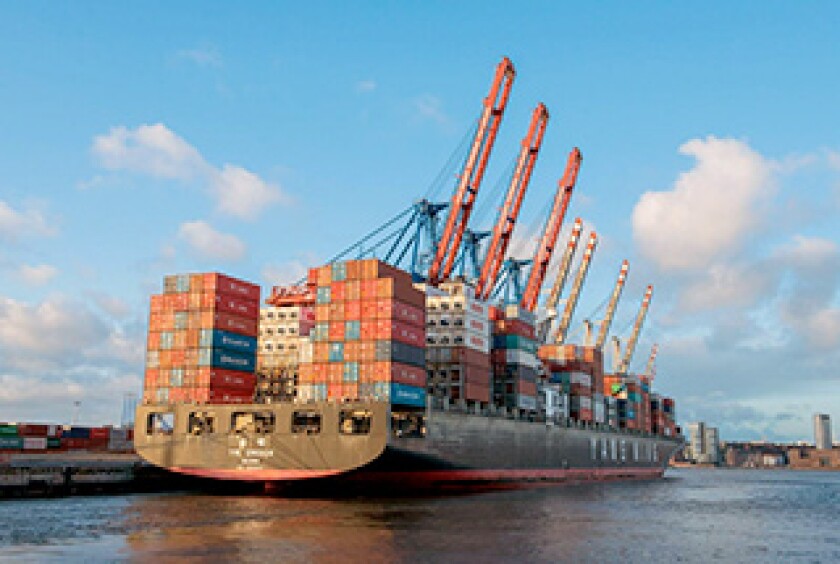ATO releases draft guidance on offshore shipping service hubs
The Australian Taxation Office (ATO) has released a draft schedule that deals with offshore shipping service hubs.
Schedule 3 of PCG2017/1 - the practical compliance guideline for offshore shipping services hubs that deals with the ATO’s approach to offshore centralised operating models - provides a new low-risk benchmark for assessing the risks associated with certain offshore shipping services. When finalised, the schedule will apply from January 1 2019.
Similar to the approach taken to other offshore hubs already covered in the PCG (marketing and non-core procurement hubs), the ATO notes in Schedule 3 that a modified cost plus outcome is the best measure to assess risk.
In the case of shipping service hubs, the ATO states that outcomes of up to 25% mark-up on hub costs will be considered low risk.
Taxpayers should note that ‘hub costs’ are defined to include only operating costs related to the provision or organisation of shipping or shipping services in connection (directly or indirectly) with Australian exports by a related party.
Costs associated with shipping directly – pass-through costs and any other expense not connected to shipping service hub revenues – must be excluded from the cost base when calculating the result. In addition, the indicators in the draft schedule cannot be used in situations in which the vessels are owned by the hub.
The draft schedule narrows the definition of what types of shipping service hubs will be able to rely on the low-risk benchmark. In particular, the schedule will only apply to shipping services associated with exports of the following natural resource commodities or products:
Iron ore;
Liquefied natural gas (LNG);
Thermal coal;
Metallurgical coal;
Aluminium (including alumina and bauxite);
Precious metals or stones (if transported by sea, including gold, silver and diamonds);
Crude oil (including condensate);
Petroleum products (including LPG, blendstocks and feedstocks); and
Other metals, minerals or mined elements (including lithium, rare earths, uranium, copper, lead, zinc and nickel).
It is assumed that the last category encompasses less refined stages of the metals listed (such as spodumene concentrate, nickel matte, copper concentrate, etc.), although this is not entirely clear.
The draft schedule also makes a small concession for hubs that have integrated shipping and marketing functions. In those cases, if the total costs associated with the provision of both marketing and shipping services is less than A$2 million ($1.4 million), the low-risk benchmark is set at a 100% mark-up on total hub costs. One hundred percent is the mark-up rate that applies to marketing hubs as per Schedule 1 of the PCG. This is a very small concession as most marketing hubs provide integrated marketing, sales and logistics management for the entire downstream sales channel, and few would have total operating costs as low as A$2 million.
Integrated hubs that have an operating cost base in excess of A$2 million must now segment the different cost bases and try to determine two different revenue streams (one from commodity sales and one from shipping activities), and apply two different low-risk benchmark thresholds to the activities. This approach will present practical difficulties to taxpayers in many cases.
For example, an integrated hub that purchases commodities on a free on board (FOB) basis and sells on a delivered ex-ship (DES) basis will typically receive only a single revenue amount from a customer for the delivered commodity. Segmenting this amount into hypothetical shipping activity and commodity sales-based revenues will involve some subjective and potentially arbitrary judgement by taxpayers. In addition, if the shipping hub manages both Australian-sourced goods and goods sourced from other countries, then an allocation of the costs incurred only in respect of the Australian-sourced exports is required, adding a further layer of complexity.
These situations also mean that the Australian entity – having sold FOB – has no responsibility either directly or indirectly for shipping costs, nor to reimburse the offshore hub for shipping activities. Nevertheless, the schedule states that such offshore entities will still be considered to be shipping service hubs subject to the terms of the PCG.
The ATO states that the 25% mark-up on costs that is set for the low-risk threshold is based on information available to the ATO from its various activities. However, the data sources will not be publicly released.
In common with other hubs covered by the PCG, a colour-coded risk scale is provided to help taxpayers determine their risk rating. The low-risk green rating can be achieved only when the mark-up on relevant costs is less than 25%. The remaining risk ratings (blue to red) are determined by the potential amount of tax at risk (the Australian tax potentially payable on the difference between the actual profit achieved in the hub versus the profit had the mark-up rate of 25% been achieved). A lack of appropriate transfer pricing documentation for the arrangements will significantly increase the risk rating, regardless of the potential tax at risk.
Taxpayers who may be affected by this draft schedule should review their offshore entities and consider whether any part of them may fall under the shipping service hubs definition. If so, they should review their operations and determine whether the various financial segmentations required are possible, or whether systems need to be modified to gather the appropriate information.
It is likely that there will be an updated reporting requirement for shipping services hub self-assessments in the reportable tax position schedule for relevant taxpayers.
This article was written by David Watkins (dwatkins@deloitte.com.au) of Deloitte Australia.

|
David Watkins |










